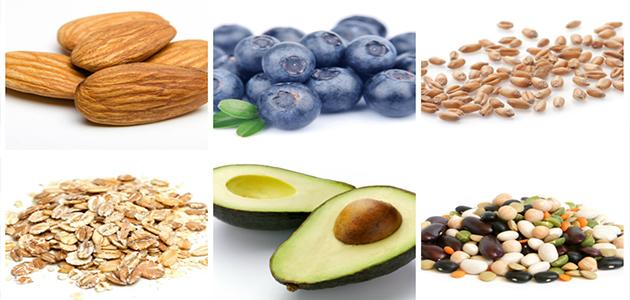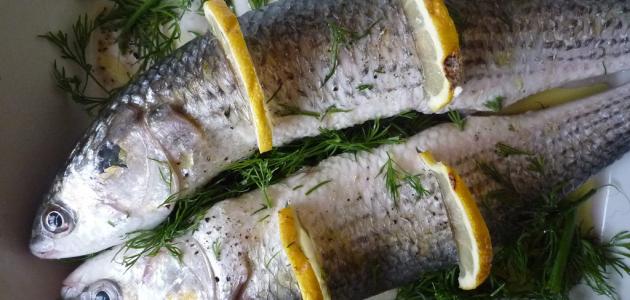Contents
Nervous system
The nervous system consists of a complex interweaving of a group of nerves and cells, which carry out the task of delivering and receiving messages in the form of signals between the brain and the spinal cord and the various organs and systems of the body. The nervous system in the human body in general can be classified into two parts, namely: the central nervous system, which consists of The brain and spinal cord, in addition to the peripheral nervous system, which consists of the physical nervous system and the autonomic nervous system, [1] as the nervous system has its importance due to its involvement in all aspects that ensure the preservation of the health of the body, such as the growth and development of the brain , and the ability to practice learning and memorizing information Sleep, and the preservation of the senses such as touch, hearing, smell and others, in addition to the ability to think, release emotions and control them. [2]
Is there a specific food to strengthen the nervous system
There is no scientific evidence about the existence of a specific food to strengthen the nervous system, however, the keenness to follow a healthy and balanced diet contributes to improving the functions of body organs such as the heart and the brain, and also contributes to reducing the body's risk of many serious diseases such as strokes and Alzheimer's disease , as well as It contributes to controlling any nervous disorders. [3]
Food that promotes a healthy nervous system
It turns out that many nutrients may play a role in maintaining the health of the nervous system, and each has a specific role, [4] and we mention of these elements the following:
- Food rich in B vitamins: It is known that B vitamins contribute to support and enhance the functions of the nervous system, and it is worth noting that deficiency of B vitamins may lead to neuropathy , for example vitamin B6 may contribute to maintaining health Nerve endings, [5] Vitamin B12 also contributes to the manufacture of some neurotransmitters, in addition to delaying the onset of signs of dementia. It is worth noting that taking supplements with vitamin B12 improves cerebral and cognitive functions, especially in the elderly, in addition to improving the linguistic functions of people. Those who suffer from cognitive disorder, and a deficiency of this vitamin in adolescents may lead to a decrease in their cognitive levels, [4]While folic acid contributes to reducing the risk of neural tube defects such as spina bifida and brain abnormalities , [6] foods rich in group B vitamins include salmon , leafy vegetables, legumes, liver and organ meats of all kinds. Beef, eggs, and milk. [7]
- For more sources of B vitamins can read an article What are the foods rich in vitamin B .
- Foods rich in vitamin C: The nerve endings contain the second highest concentration of vitamin C in the human body, after the adrenal glands (Suprarenal glands). [4] One study published in the Journal of Alzheimer's disease in 2012 indicated that Vitamin C possesses antioxidant properties that contribute to lessening the damage of oxidative stress that can increase the risk of developing dementia, age-related cognitive decline, Alzheimer's disease, and other neurological diseases, [8] although more studies are still needed. To confirm the effectiveness of vitamin C in maintaining a healthy nervous system , [9]Among the foods rich in vitamin C: citrus fruits and their juices, such as oranges and grapefruit, in addition to many fruits such as kiwi, mango, papaya, pineapple, strawberries, and some vegetables such as broccoli, cauliflower, green and red peppers, spinach, cabbage, kale, white sweet potatoes, Plus many leafy greens. [10]
- For more sources of vitamin C, read the article Where is Vitamin C Found .
- Food rich in Vitamin D: As consuming adequate amounts of Vitamin D may contribute to reducing the risk of some nerve diseases, or neurological immune diseases , [4] one of the studies published in The Journal of the American showed In 2006, the Medical Association stated that getting and maintaining adequate levels of vitamin D in the blood contributes to reducing the risk of developing multiple sclerosis, [11] [12] and from foods rich in vitamin D : fish and mushrooms exposed to sunlight. Fortified milk and alternatives, fortified tofu, fortified yogurt, plus breakfast cereals fortified with vitamin D. [13]
- For more sources of vitamin D can read an article What are the foods rich in vitamin D .
- Foods rich in vitamin E: Vitamin E exists in two different forms, which are tocopherols and tocotrienols, but the part that the brain absorbs effectively is called alpha-tocopherol, and it contributes to maintaining The health of the nervous membranes, [4] and one of the studies conducted on mice and published in the journal Brain Research indicated the importance of obtaining adequate amounts of vitamin E to reduce the risk of brain cells suffering structural and functional damage, and that the brain absorption of high amounts of vitamin E contributes to improving Dopamine secretion, [14]Among the foods rich in vitamin E: vegetable oils such as wheat germ oil and sunflower oil, nuts such as almonds, seeds such as sunflower seeds, green leafy vegetables such as spinach and broccoli , in addition to fortified products such as breakfast cereals, fruit juices, or margarine. [15]
- For more sources of vitamin E, read the article Where is Vitamin E Found in Food .
- Food rich in vitamin K: Vitamin K may contribute to the metabolic processes related to nervous tissue, [4] and it is also important in the manufacture of some fatty compounds found in brain cell membranes, in addition to many proteins important for the health of the nervous system also depend on vitamin K, and that According to what was indicated by a study published in Advances in Nutrition in 2012, [16] and foods rich in vitamin K: vegetables such as spinach, broccoli, asparagus , legumes such as green beans, eggs, strawberries, and some types of meat such as liver. [17]
- For more sources of vitamin K, read the article Where is Vitamin K Found in Food .
- Mineral rich foods: including
- Iron: The importance of iron lies in maintaining the proper transport of oxygen within cells, and in the manufacture of neurotransmitters, and the myelin compound, and iron deficiency has been observed in children with hyperactivity and attention deficit, and iron contributes to the development of the fetus and is related to the level of intelligence In children, [4] one study published in The American Journal of Clinical Nutrition showed that anemia caused by low levels of iron in the blood may affect the central nervous system, [18] and among iron-rich foods: chicken and lamb livers, and sardines. Eggs, duck meat, legumes such as lentils, beans, chickpeas, tofu , pumpkin seeds, sunflowers, nuts, especially cashews, and almonds. [19]
- For more information on iron sources, read the article Where is Iron Found in Food .
- Iodine: The iodine component produced by the thyroid gland contributes to the energy metabolism of brain cells. It should be noted that the lack of iodine in a woman’s body during pregnancy may cause serious damage to the fetus’s brain, and congenital iodine deficiency syndrome , [4] Also, one of the studies conducted on mice and published in the European Society of Endocrinology showed that iodine deficiency affects levels of thyroid hormone inside cells, and may cause hypothyroidism, thus disrupting brain functions, [20] and iodine can be obtained from several sources. Most notable are shrimp, tuna, eggs, milk, dried seaweed and fish sticks. [21]
- For more information on sources of iodine, read the article Where is Iodine Found in Food .
- Zinc: Zinc plays an important role in the transmission of nerve signals, and low levels of zinc in the body may lead to an increased risk of neurodegenerative diseases such as Alzheimer's disease, depression, and Parkinson's disease. [22] One of the studies published in The Journal of Nutrition in general 2000, that zinc contributes to the functioning of secretory neurons in its role as a cofactor, in addition to its role in synapses. [23] Among the foods rich in zinc are: meat, poultry, crab, and shellfish, as well as vegetables such as mushrooms, legumes, nuts, seeds, and grains. Full. [24]
- For more sources of zinc, read the article Where is Zinc Found in Food .
- Copper: The presence of copper in the body helps to control and control nerve signals, and low levels of copper in the body may increase the risk of developing neurodegenerative disorders. Like Alzheimer's disease, [22] and one of the studies published in Progress in Neurobiology in 2014 indicated that the copper element is very important for the normal development of the brain. Disorders of brain function, [25] and foods rich in copper include oysters , whole grains, beans, potatoes, yeast, cocoa, black pepper, dried fruits, and dark leafy vegetables. [26]
- For more information on copper sources, read the article Where is the element copper found .
- Omega-3 fatty acids : Omega-3 fatty acids are used to build brain cells and nerves, [22] and one study published in Current Medicinal Chemistry in 2016 indicated that omega-3 fatty acids are important in reducing the risk of many inflammatory diseases. Such as cardiovascular disease , neurological and cognitive diseases and disorders, and having adequate quantities of omega-3 fatty acids contributes to the proper development of cells and nervous tissues in the brain. [27] Among the foods rich in omega-3 fatty acids: salmon, sardines, and mackerels , cod liver oil, oysters, flaxseeds, chia seeds, walnuts, and soybeans. [28]
- For more information on sources of omega-3s, read the article Where there is omega-3 in food .
References
- ↑ Ananya Mandal (11-4-2019), "What is the Nervous System?" , Www.news-medical.net The , Retrieved 1-7-2020. Edited.
- ↑ "What does the nervous system do?" , www.nichd.nih.gov , 10-1-2018, Retrieved 1-7-2020. Edited.
- ↑ "Brain food" , www.brainandspine.org.uk , 4-2017, Retrieved 1-7-2020. Edited.
- ^ A b t w c H x D , Jean-Marie Bourre (2006), "Effects Of Nutrients (In Food) On The Structure And Function Of The Nervous System: Update On Dietary Requirements For Brain. Part 1: Micronutrients" , Journal Unit Of nutrition health and aging , Issue 5, Folder 10, Page 377. Edited.
- ↑ Emily Cronkleton (4-17-2018), “6 Best Supplements for Neuropathy” , www.healthline.com , Retrieved 6/30-2020. Edited.
- ↑ Edward Reynolds (2006), “Vitamin B12, folic acid, and the nervous system” , The Lancet Neurology , Issue 11, Folder 5, Page 949-960. Edited.
- ↑ Marsha McCulloch (11-10-2018), "15 Healthy Foods High in B Vitamins" , www.healthline.com , Retrieved 6/30-2020. Edited.
- ↑ Fiona Harrison (2012), “A critical review of Vitamin C for the prevention of age-related cognitive decline and Alzheimer's disease” , Journal of Alzheimer's disease , Issue 4, Folder 29, Page 711--726. Edited.
- ↑ Ryan Raman (19-2-2020), “7 Impressive Ways Vitamin C Benefits Your Body” , www.healthline.com , Retrieved 6/30-2020. Edited.
- ↑ Emily Wax (2-2-2019), "Vitamin C" , www.medlineplus.gov , Retrieved 30-6-2020. Edited.
- ↑ Kassandra Munger, Lynn Levin, Bruce Hollis And Others (20-12-2006), “Serum 25-Hydroxyvitamin D Levels and Risk of Multiple Sclerosis” , The Journal of the American Medical Association , Issue 23, Folder 296, Page 2832- 2838. Edited.
- ↑ "The Benefits of Vitamin D" , www.healthline.com , 7-4-2020, Retrieved 30-6-2020. Edited.
- ↑ Daisy Whitbread (27-6-2020), "Top 10 High Vitamin D Foods" , www.myfooddata.com , Retrieved 6/30-2020. Edited.
- ↑ Antonio Martin, Dena Janigian, Barbara Shukitt-Hale And Others (16-10-1999), "Effect of vitamin E intake on levels of vitamins E and C in the central nervous system and peripheral tissues: implications for health recommendations" , Brain Research , Issue 1, Folder 845, Page 50-59. Edited.
- ↑ Emily Wax (2-2-2019), "Vitamin E" , www.medlineplus.gov , Retrieved 30-6-2020. Edited.
- ^ Guylaine Ferland (2012), “Vitamin K and the Nervous System: An Overview of its Actions” , Advances in Nutrition , Issue 2, Folder 3, Page 204–212. Edited.
- ↑ "Vitamin K" , www.webmd.com , 4-3-2018, Retrieved 30-6-2020. Edited.
- ↑ Manuel Roncagliolo, Marcelo Garrido, Tomas Walter And Others (1-9-1998), "Evidence of altered central nervous system development in infants with iron deficiency anemia at 6 mo: delayed maturation of auditory brainstem responses" , The American Journal of Clinical Nutrition , Issue 3, Folder 68, Page 683-690. Edited.
- ↑ "Foods high in iron" , www.healthdirect.gov.au , 2-2020, Retrieved 1-7-2020. Edited.
- ↑ Angel Campos-Barros, Harald Meinhold, Barbara Walzog And Others (3-1997), "Effects of selenium and iodine deficiency on thyroid hormone concentrations in the central nervous system of the rat" , European Journal of Endocrinology , Issue 3, Folder 136 , Page 316--323. Edited.
- ↑ Daisy Whitbread (4-8-2020), "Foods High in Iodine" , www.myfooddata.com , Retrieved 2-7-2020. Edited.
- ^ A b v Kerri-Ann Jennings (9-5-2017), "11 . Best Foods To Your your Boost : Brain And the Memory" , Www.healthline.com , Retrieved 2-7-2020. Edited.
- ↑ Christopher Frederickson, Sang Suh, David Silva And Others (1-5-2000), “Importance of Zinc in the Central Nervous System: The Zinc-Containing Neuron” , The Journal of Nutrition , Issue 5, Folder 130, Page 1471S– 1483S. Edited.
- ↑ Moira Lawler (4-10-2020), "10 Best Food Sources of Zinc" , www.everydayhealth.com , Retrieved 2-7-2020. Edited.
- ↑ Ivo Scheibera, Julian Mercer And Ralfn Dringen (2014), “Metabolism and functions of copper in brain” , Progress in Neurobiology , Folder 116, Page 33-57. Edited.
- ↑ Megan Ware (23-10-2017), "Health benefits and risks of copper" , www.medicalnewstoday.com , Retrieved 2-7-2020. Edited.
- ↑ Tomasz Wysoczański, Ewa Wysoczańska, Jolanta Pękala And Others (2016), “Omega-3 Fatty Acids and their Role in Central Nervous System - A Review” , Current Medicinal Chemistry , Issue 8, Folder 23, Page 816-831. Edited.
- ↑ Freydis Hjalmarsdottir (9-30-2019), "12 Foods That Are Very High in Omega-3" , www.healthline.com , Retrieved 3-7-2020. Edited.
















